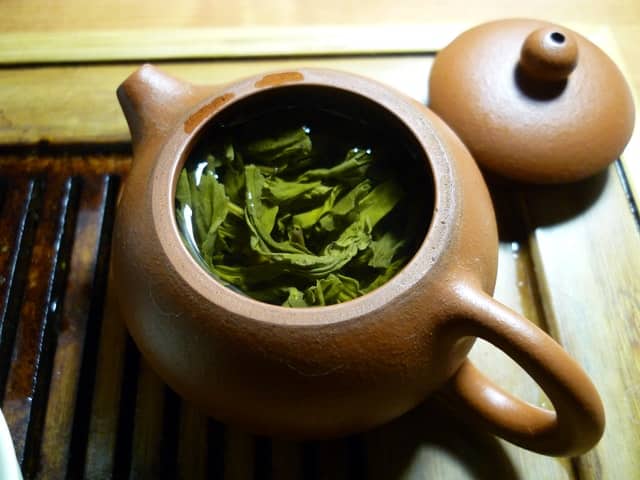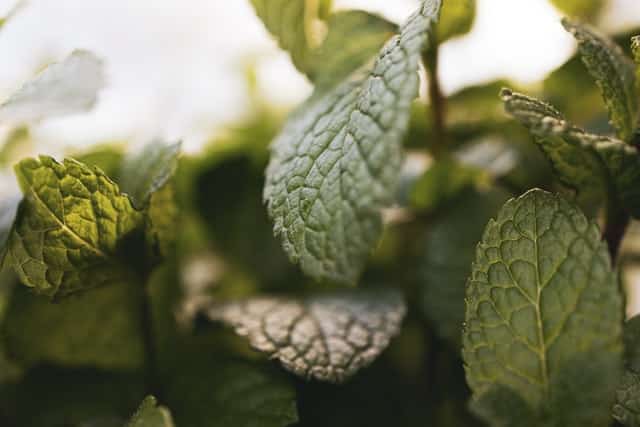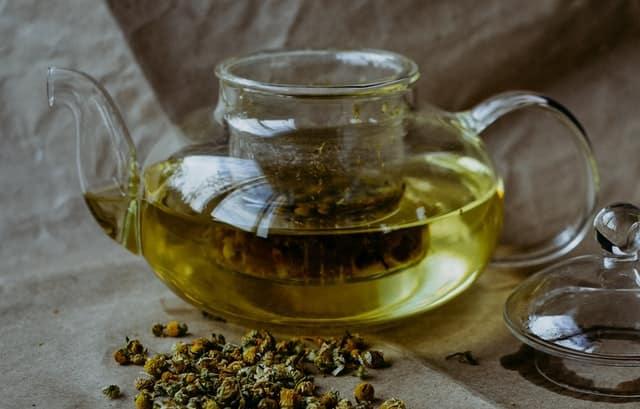Does Green Tea help with sore throat? Plus 8 other teas to try
Quick Navigation
This post may contain affiliate links. Read the full disclosure here
Green tea has many health benefits. It has been used for centuries in Asia and is now becoming popular in the United States.
Green tea is made from the leaves of Camellia sinensis, a plant native to Asia. It has become popular due to its high levels of polyphenols which act as antioxidants and protect our cells from damage.
However, does green tea help with a sore throat?
In this article, we look at the research and explain if green tea can provide relief from soreness and inflammation in the throat.
Does green tea help with sore throat?
Green tea has been shown to have many health benefits, from improving cognitive function to reducing the risk of cancer. And of course, green tea is also known for its antioxidant properties.
But does it help with sore throats? It’s not as simple as you might think.
Green tea contains many compounds that are beneficial to health, but one of its main ingredients is epigallocatechin gallate (EGCG), which has been shown to be an effective component for fighting off a cold.

However, while EGCG does have antioxidant and anti-inflammatory properties, it doesn’t seem to help with sore throats specifically. There isn’t much evidence for any sort of remedy that will relieve a sore throat.
Green tea also contains caffeine, which might have potential benefits as a pain reliever for headaches and other aches. It does this by blocking adenosine receptors in your brain, which are responsible for pain signals. It’s important to note that there are not many studies investigating this application of caffeine.
So overall, green tea might not conclusively fix the problems that cause inflammation or soreness in the throat, but it can certainly help provide relief.
Things to add to green tea to sooth a sore throat
Honey
In addition to being delicious, raw honey has been shown to have many health benefits including improving sleep quality and reducing stress levels.
But did you know that it’s also an effective remedy for sore throats? A review published by the Mayo Clinic found Honey to be as effective as a common over the counter cough suppressant. Mayo Clinic cites eucalyptus honey, citrus honey, and labiatae honey as reliable cough suppressants in some people.
Honey also has antibacterial and anti-inflammatory properties that make it a great addition to tea.
Peppermint Leaves
The menthol in peppermint leaves acts as an analgesic (pain reliever) and can help with inflammation and congestion.

Lemon Juice
More than just an ingredient in mixed drinks, lemon is also good for your health!
Studies have investigated lemon juice’s effect on the common cold and found it may have a positive effect on reducing the length of colds due to its high Vitamin C content. However, These studies were not conclusive.
Ginger Root
Ginger root contains compounds called gingerols, which have anti-inflammatory properties that can reduce pain and swelling from a sore throat or cold.
Other teas to try for sore throat
Green tea has been reported to help soothe a sore throat, but it’s not the only option. Peppermint, black tea, mint tea, chamomile tea, along with other options are popular traditional remedies for sore throat that you can try instead.
Peppermint Tea
Peppermint is commonly used to soothe a sore throat because it contains menthol, which can relax your airways and reduce inflammation. It also contains salicylic acid, which is an anti-inflammatory that can reduce swelling.
Black tea
Black tea has similar ingredients as green tea but in different amounts. It contains more tannins than green tea and less caffeine than both green and white teas. This makes it ideal for soothing a sore throat because the tannins have anti-inflammatory properties that can reduce swelling and the caffeine helps you feel more awake.
Mint tea
Mint has been reported to help with a sore throat because it contains menthol, just like peppermint tea. Menthol has anti-inflammatory properties that can reduce swelling.
Chamomile tea
Chamomile is said to help soothe a sore throat because it contains apigenin (a flavonoid) and bisabolol (a type of alcohol). Both of these ingredients are anti-inflammatories that can reduce swelling around your airways. The flavonoid also helps you relax by reducing adrenaline levels in your brain.
This reduction in adrenaline may be why many people report feeling calm after drinking chamomile tea when they have a cold or the flu.

Ginger tea
Ginger is said to help relieve a sore throat due to its anti-inflammatory properties and its ability to increase blood flow to the area around your airways.
Licorice Root tea
Licorice root tea is effective for a sore throat and coughs because of its anti-inflammatory properties.
It can also soothe the respiratory tract, which helps clear mucus buildup in the throat.
Slippery Elm tea
Slippery elm (Ulmus rubra) is a deciduous tree native to the eastern United States. Slippery elm bark, twigs, and roots are harvested for medicinal use and have been used as a traditional medicine for centuries by the Native Americans.
So how does it help a sore throat?
Slippery elm contains many healing compounds, including mucilage, which is a gel like substance that coats the throat and makes it feel better.
Warnings
Some of the herbal remedies mention shouldn’t be taken by everyone, like licorice root tea and pregnant women.
Your doctor can help you understand the potential risks of taking certain herbs, including possible drug interactions and other side effects.
You should also seek professional medical attention if your sore throat:
- lasts more than a week
- is getting worse
- is accompanied by other symptoms, such as fever, chills, nausea, or vomiting

